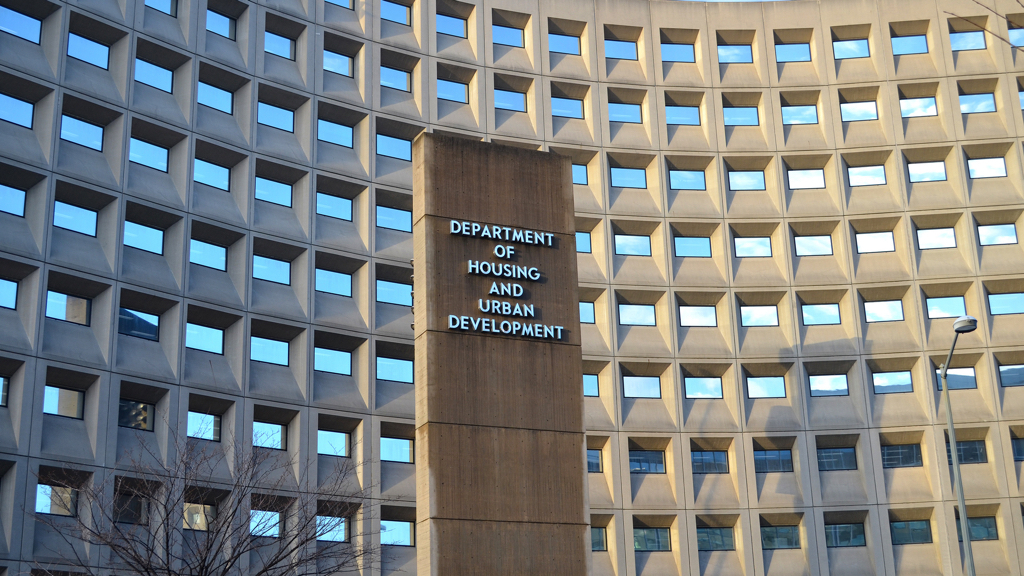When Kristy Greenwalt needs something from from the federal government these days, it’s not always clear who she’s supposed to call on. Greenwalt, the executive director of the District’s Interagency Council on Homelessness, is one of many city-government and nonprofit leaders whose jobs became much more difficult and murky on January 20, when one administration that made progressive strides on low-income housing and homelessness was replaced by one that—so far—seems to have little interest in those issues.
“They don’t really have people who can get policy out the door,” Greenwalt says of the Trump Administration.
So far, the Administration has very few if its own people inside the Department of Housing and Urban Development other than Secretary Ben Carson, a retired neurosurgeon but complete novice on housing policy. Of the 12 Senate-confirmed positions inside HUD, only Carson is in place; nominees for four other positions are still going through committee review, while the White House has not floated any names for the remaining seven.
As with other agencies across the federal government that President Trump has been slow to staff up, many of HUD’s day-to-day functions are being overseen by career employees stepping into acting roles. But even if those longtime public servants have the expertise to run the department, the absence of political hires responsible for setting the agenda could cause chaos when it comes time to write a budget and determine agency priorities.
“The president has made a proposal about what the budget ought to be,” says Max Stier, the chief executive of the Partnership for Public Service, which advises presidential administrations of both parties on appointments. “There’s going to be negotiation with the Hill about where the money goes, and there’s going to have to be a case made by HUD itself as to why it should get the resources we need. And in each and every one of those aspects there will be a way in which not having the people in place will diminish the ability of the agency to know to do best by the people they serve.”
The limited hand Donald Trump’s administration has shown so far suggests a greatly diminished role for HUD, which would see its annual funding cut by more than $6.8 billion in the White House’s proposed budget for the 2018 fiscal year. Even without Carson’s inconspicuousness since the new secretary’s underwhelming “listening tour” in April, the proposed cuts would deal severe blows to DC’s programs aimed at combatting homelessness.
Under Trump’s proposed budget, the District could lose up to $19 million in public-housing funds, shifting even more of a financial burden—the city estimates it’ll cost about $1.3 billion to repair the 8,300 public-housing units it manages—onto local taxpayers. Perhaps of greatest concern to DC’s most vulnerable residents is the potential loss of 1,000 rental-assistance vouchers, without which individuals and families could lose their homes, according to the DC Fiscal Policy Institute.
But a lack of firm leadership at HUD makes it more difficult for DC to prepare for the worst potential cuts. And Carson’s limited public statements only make things more fraught, such as his comment last month that poverty is “a state of mind.”
“That’s really disrespectful to the reality that our clients have struggled with,” says Patricia Fugere, who’s led the Washington Legal Clinic for the Homeless since 1991.
Under Carson, the White House has nominated Pam Hughes Patenaude, who served as an assistant HUD secretary in the George W. Bush Administration and whose selection has been applauded by both the home-building industry and civil-rights groups like the National Fair Housing Alliance. But even with the appointment of one relative expert to the department, there have been dubious hires, like Lynne Patton, a former wedding planner whose clients included Eric Trump, being tapped to oversee HUD’s operations in New York and New Jersey. (The Administration has not selected anyone yet to run the HUD division that includes DC.)
Still, there may be an odd silver lining to a HUD Department run by a skeleton crew: there’s no one around to implement hostile policy proposals, allowing city-level functionaries like Greenwalt to continue operating under the guidelines laid out by the Obama Administration’s Opening Doors program, a 2010 initiative aimed at ending homelessness.
“In the first six months of this administration, things haven’t changed dramatically, because we’ve had our heads down and done the work,” Greenwalt says.
Without much coming from the secretary’s office, Greenwalt and her colleagues look to long-serving career employees like Norm Suchar, who runs the HUD office that oversees programs like food assistance and emergency housing grants.
As for Carson’s performance so far, “nobody can even take it seriously,” Greenwalt says. “With this administration, there’s no expertise in these key positions. But we feel comfortable with the leadership that’s put the system in place. It doesn’t all come to a grinding halt.”
In a sense, Greenwalt and her counterparts in DC’s other anti-homelessness efforts are racing to do as much as they can before the new administration fully stands up a HUD Department to carry out its budget-paring agenda. Beyond the 7,473 homeless people the city counted in its annual survey, there are between 40,000 and 60,000 households considered to be living in “worst-case” situations. Greenwalt says relying on local investment only is “maybe treading water.”
“When you think of the iceberg model, homelessness—the people we see on the street—is on top,” she says. “What’s beneath the water line is so much bigger.”
“There’s been nothing coming out of the federal government. But the budget cuts are no doubt going to hurt.”
Washingtonian is one of seven DC-based newsrooms dedicating a portion of our news-gathering to a June 29 collaborative news blitz aimed at uncovering barriers and solutions to ending homelessness. See all participants’ work at DCHomelessCrisis.Press.




















